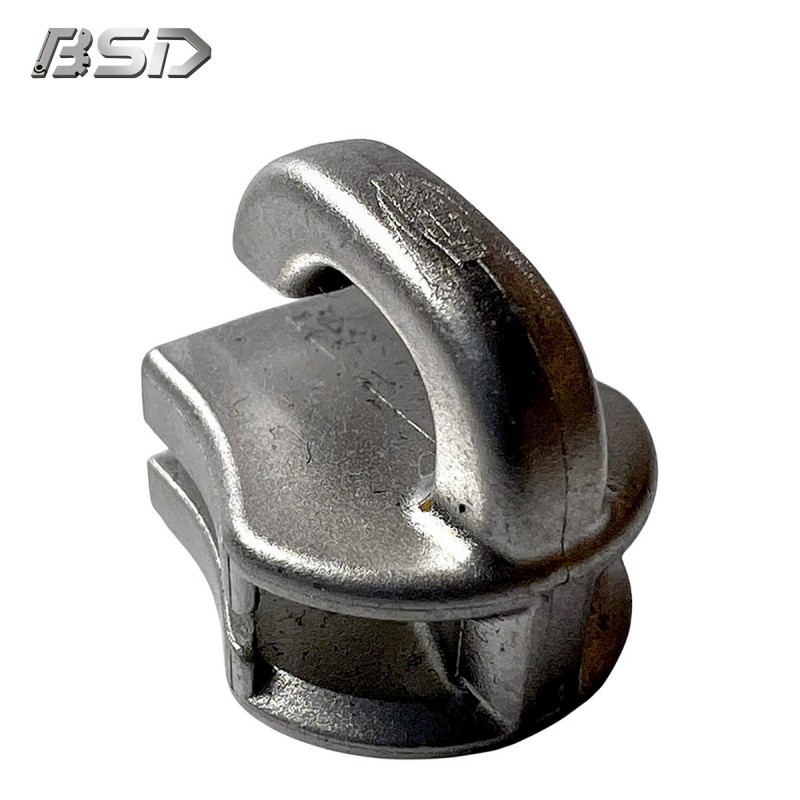How Does Metal Injection Molding Revolutionize Precision Manufacturing?
2025-09-08
Metal Injection Molding (MIM) has rapidly become one of the most efficient and precise manufacturing techniques for producing complex, high-performance metal components. As industries demand smaller, stronger, and more intricate parts, traditional manufacturing methods like CNC machining and die casting often struggle to meet modern expectations. MIM combines the versatility of plastic injection molding with the strength of powdered metallurgy, making it a preferred solution across industries such as automotive, aerospace, medical devices, electronics, and consumer goods.
Metal Injection Molding is an advanced manufacturing process that blends fine metal powders with a binder material to create a feedstock. This feedstock is injected into a mold, similar to plastic injection molding, to form intricate shapes with high dimensional accuracy. After molding, the binder is removed, and the part is sintered at high temperatures to achieve near-full metal density.
How MIM Works
The MIM process can be divided into four main stages:
| Stage | Description |
|---|---|
| Feedstock Preparation | Fine metal powders are mixed with a thermoplastic binder to create a homogeneous feedstock. |
| Injection Molding | The feedstock is injected into molds under high pressure, forming “green” parts. |
| Debinding | The binder is removed using solvent or thermal processes, leaving a porous structure. |
| Sintering | The parts are heated to near melting point, causing metal particles to fuse and achieve high density. |
This hybrid process allows manufacturers to create complex components without the limitations of conventional machining. Parts produced via MIM often require little to no secondary machining, making it highly cost-effective for high-volume production.
Why Choose Metal Injection Molding Over Traditional Manufacturing?
Industries across the globe are increasingly adopting MIM due to its unique ability to combine design flexibility, precision, and efficiency. Here are the main reasons why MIM outperforms traditional methods like machining, stamping, and die casting:
Key Advantages of MIM
-
Complex Geometry
MIM enables the production of parts with intricate shapes, thin walls, undercuts, and internal cavities that are nearly impossible to achieve with traditional methods. -
High Material Utilization
Unlike CNC machining, which removes material from a block, MIM uses nearly all the feedstock material, minimizing waste and reducing production costs. -
Exceptional Mechanical Properties
MIM components achieve up to 98% relative density, giving them mechanical strength, hardness, and fatigue resistance comparable to wrought materials. -
Scalability
MIM is ideal for mass production, especially when high volumes of identical parts are required. Once the mold is designed, thousands or millions of components can be produced with consistent quality. -
Wide Material Selection
MIM supports stainless steels, tool steels, titanium, tungsten, cobalt-chromium alloys, and other high-performance metals, making it suitable for demanding applications.
Industries Leveraging MIM Technology
| Industry | Application Examples |
|---|---|
| Automotive | Turbocharger components, fuel system parts, transmission gears |
| Medical | Surgical instruments, orthodontic brackets, dental implants |
| Consumer Electronics | Smartphone hinges, camera housings, wearable device components |
| Aerospace | Engine components, structural brackets, connectors |
| Industrial Tools | Precision gears, fasteners, and custom-engineered tool parts |
MIM’s combination of design freedom and material performance makes it a go-to technology for manufacturers looking to push innovation forward.
Product Parameters and Technical Specifications
When selecting a Metal Injection Molding solution, understanding the technical specifications is crucial. BSD offers a wide range of material options, dimensional tolerances, and surface finishes to meet diverse industry demands.
General Specifications of BSD’s MIM Components
| Parameter | Specification |
|---|---|
| Density | Up to 98% of theoretical density |
| Dimensional Tolerance | ±0.3% (as-sintered) |
| Surface Finish | Ra 1.0 μm to Ra 0.8 μm (polished) |
| Component Weight | 0.1 g to 200 g |
| Part Size | Up to 100 mm in a single dimension |
| Material Options | Stainless steel, tool steel, titanium, tungsten, cobalt-chromium alloys |
| Annual Volume | From 5,000 pcs to 10 million pcs |
BSD’s MIM solutions are engineered to meet the highest quality standards and comply with international certifications, ensuring that each component performs reliably in demanding environments.
FAQs on Metal Injection Molding
Q1: What is the typical lead time for Metal Injection Molding production?
A1: Lead time depends on the complexity of the part and the required volume. Typically, prototyping takes 4 to 6 weeks, including mold design and fabrication. For mass production, once the mold is finalized, BSD can deliver high-volume batches within 2 to 3 weeks.
Q2: How cost-effective is MIM compared to CNC machining?
A2: MIM becomes highly cost-effective for medium to large production volumes. While initial tooling costs can be higher, the per-unit cost decreases significantly as production scales. For complex geometries, MIM often eliminates secondary machining and reduces material waste, making it substantially more economical in the long run.
BSD — Your Trusted Partner for Precision Metal Injection Molding
Metal Injection Molding has redefined what’s possible in precision manufacturing. Its ability to deliver complex geometries, superior material properties, and high-volume efficiency makes it the go-to technology for industries where performance and miniaturization are key.
At BSD, we specialize in providing customized MIM solutions tailored to your exact specifications. With advanced manufacturing facilities, strict quality control, and a dedicated engineering team, we ensure every component meets the highest standards of reliability and performance.
If you're looking to enhance your production capabilities with high-precision MIM components, BSD is here to help. Contact us today to discuss your project requirements and discover how our expertise can support your innovation.



